Events and speakers
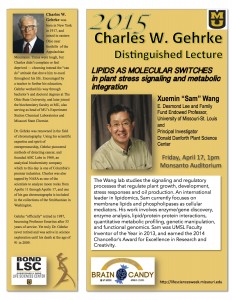
April 9, 2015
Life Sciences Week preview: Doing more with less
A simple virtue lies at the heart of Xuemin (Sam) Wang’s research: thrift. “A good way to think of it is how to increase output without demanding more inputs,” Wang said. Wang, the E. Desmond Lee and Family Fund endowed professor at the University of Missouri-St. Louis and a principal investigator at the Donald Danforth Plant Science Center, studies plant membrane lipids. His lab is focused on understanding the relationship between oil production and plant stresses such as drought and nutrient deficiency. Wang will speak during the 31st annual Missouri Life Sciences Week, a yearly celebration of MU’s…
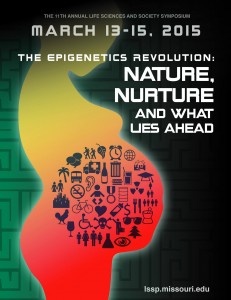
March 12, 2015
Five things you wanted to know about epigenetics (But were afraid to ask)
What the heck is it, anyway? Epigenetics involves changes in how your genes work. In classical genetics, traits pass from generation to generation in DNA, the strands of genetic material that encode your genes. Scientists thought alterations to the DNA itself was the only way changes could pass on to subsequent generations. So say you lost a thumb to a angry snapping turtle: Because your DNA hasn’t changed, your children won’t be born with smaller thumbs. Classic. Things get way more complicated with epigenetics. It turns out that some inherited changes pass on even though they…
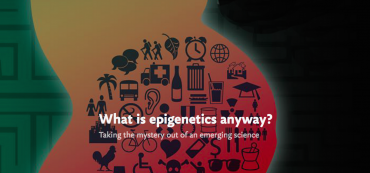
March 6, 2015
Introducing the 11th Annual LSSP topic: The Epigenetic Revolution
To introduce our 11th Annual Life Sciences and Society Program, The Epigenetics Revolution: Nature, Nurture and What Lies Ahead that runs at the University of Missouri March 13-15, we figured it would be nice to define the term epigenetics. Spoiler: It’s amazing and it could change everything. According to Merriam-Webster Dictionary, epigenetics is “the study of heritable changes in gene function that do not involve changes in the DNA sequence.” Let’s break that down. We can inherit something that changes what our genes do, but don’t actually change the code of our DNA. So what sort of things do genes do? It…
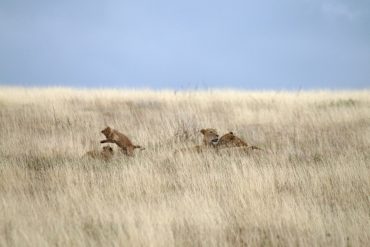
Aug. 7, 2014
A veterinarian abroad: Tanzania
In a second travel log from Bond LSC researcher Cheryl Rosenfeld, learn about the wildlife she encountered in Tanzania this summer. Through the North American Veterinary Community (NAVC), Rosenfeld furthered her veterinary education while encountering wildlife in their natural habitat. See more about the first leg of her trip to Rwanda here. By Cheryl Rosenfeld In the early morning hours, our group flew from Kigali, Rwanda to the Serengeti in Tanzania. As we began the descent to the dirt runway, we glimpsed our first sight of wildebeest and the awe-inspiring Serengeti plains and I soon boarded…
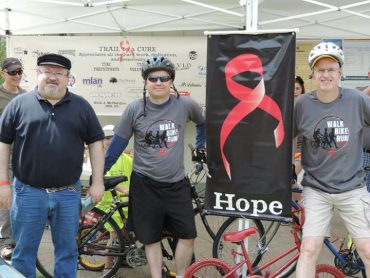
May 6, 2014
Trail to a Cure, Inc. helps fund training of future scientists, physcians
Over the weekend, Bond LSC HIV researchers Stefan Sarafianos, Marc Johnson and Donald Burke-Aguero joined Trail to a Cure, Inc., a Columbia nonprofit organization that helped fund important HIV research. Since 2008, the organization has raised $74,000 for HIV/AIDS research, with some of that funding going directly to the Bond LSC providing additional hours of lab research. The 2014 online fundraising is still open and donations can be made to Trail to a Cure, Inc. until the end of the month. The funding from Trail to a Cure helps Bond LSC researchers train future scientists and physicians in labs and…
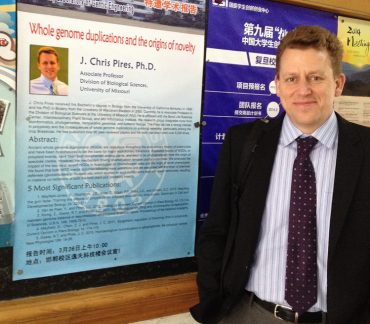
April 22, 2014
Bond LSC Investigator Chris Pires in Shanghai, Wuhan
Recently, one of our investigators, J. Chris Pires traveled to Fudan University in Shanghai and the Wuhan Vegetable Research Institute for the 19th annual Crucifer Genetic Workshop and Brassica 2014 Conference in Wuhan, China. Pires was invited to the esteemed event as the keynote speaker of the Brassica Conference. He led workshops as part of the three-day conference March 30 through April 2 and also visited Fudan University in Shanghai during the trip. Pires is an associate professor in biological sciences and focuses much of his research on the evolution of plants. His talk at Fudan University discussed his research…

March 25, 2014
Bond LSC staff prepares boat for April 12 fundraiser
Made completely of cardboard and Popeye themed, Bond LSC facilities crew say this boat could be the winner of the 3rd Annual Flot Your Boat for the Food Bank Race on April 12 — BLANKENBUEHLER Every year the College of Agriculture, Food and Natural Resources puts on a Float Your Boat for the Food Bank Race. All proceeds go to the Columbia Food Bank and last year, with 45 participants, more than $17,000 was donated. All participants craft their own boat and obey one golden rule: cardboard only. The Bond LSC crew are returning to…
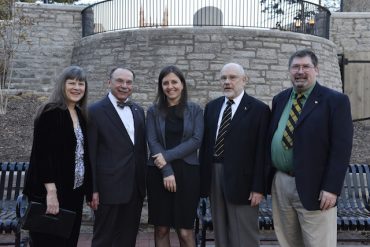
March 11, 2014
Strong symposium start by Skloot
Karin Loftin, MU Chancellor R. Bowen Loftin, Bond Life Sciences Director Jack Shultz and Tim Evans pose with Rebecca Skloot at the University of Missouri Monday evening — BLANKENBUEHLER The bridge between public knowledge and the inner-workings of the science community is one that many are reluctant to cross. Sometimes riddled with confusing terms, the most exciting discoveries aren’t always approachable. The 10th annual MU Life Sciences & Society Symposium began Monday evening with Rebecca Skloot as she spoke to a nearly full house at Jesse Auditorium Monday. Every year the symposium erases the line between community…
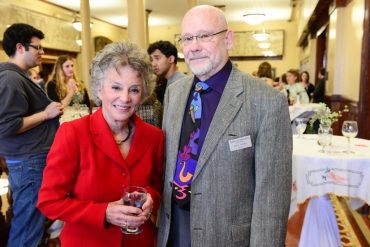
March 15, 2013
Claiming Kin, MU’s 9th annual Life Sciences and Society Symposium kicks off today
Stephanie Coontz, award-winning writer on the history of marriage, chatted with Jack Schultz, director of the Bond Life Sciences Center. Coontz presented the keynote address Friday night at Claiming Kin, MU’s 9th annual Life Sciences and Society Symposium. Check out Saturday and Sunday’s speakers on the subject of kinship athttp://lssp.missouri.edu/claimingkin/schedule. Article originally published on Decoding Science.
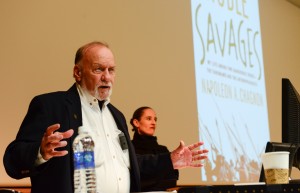
March 13, 2013
Renowned anthropologist speaks about Noble Savages
Napolean Chagnon spoke to a full house Tuesday in Monsanto Auditorium about his new book, Noble Savages. Chagnon joined MU’s Department of Anthropology as Distinguished Research Professor and Chancellor’s Chair of Excellence in 2013. He was elected to the National Academy of Sciences in 2012, but is most known for contributions to his genealogical research, his contributions to evolutionary theory in cultural anthropology and his work in the study of warfare. His new book is a retrospective look at his work as an anthropologist, where he most famously document the Amazonian Yanomamö tribe of Venezuela in the…
- « Previous
- 1
- 2
- 3